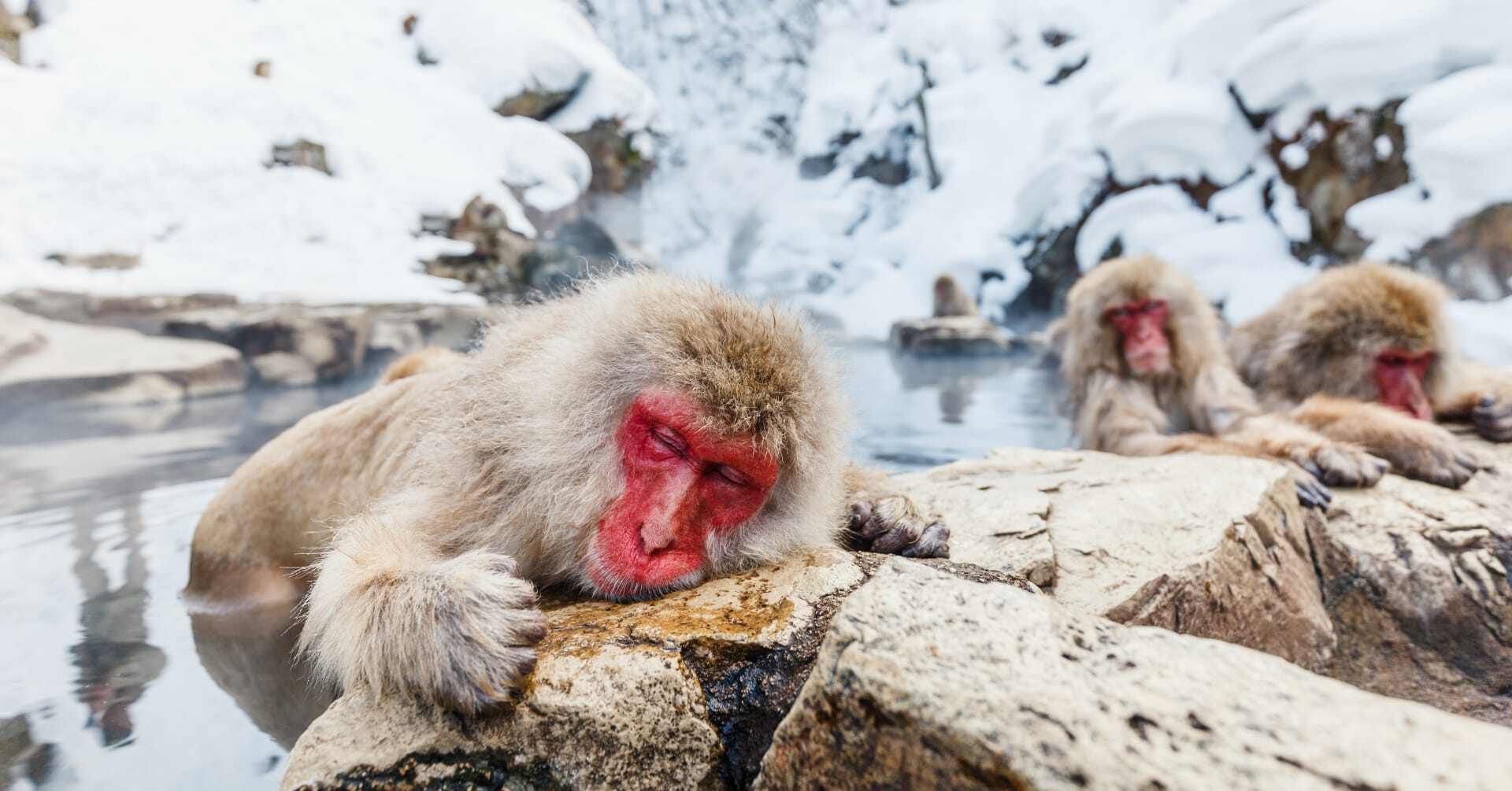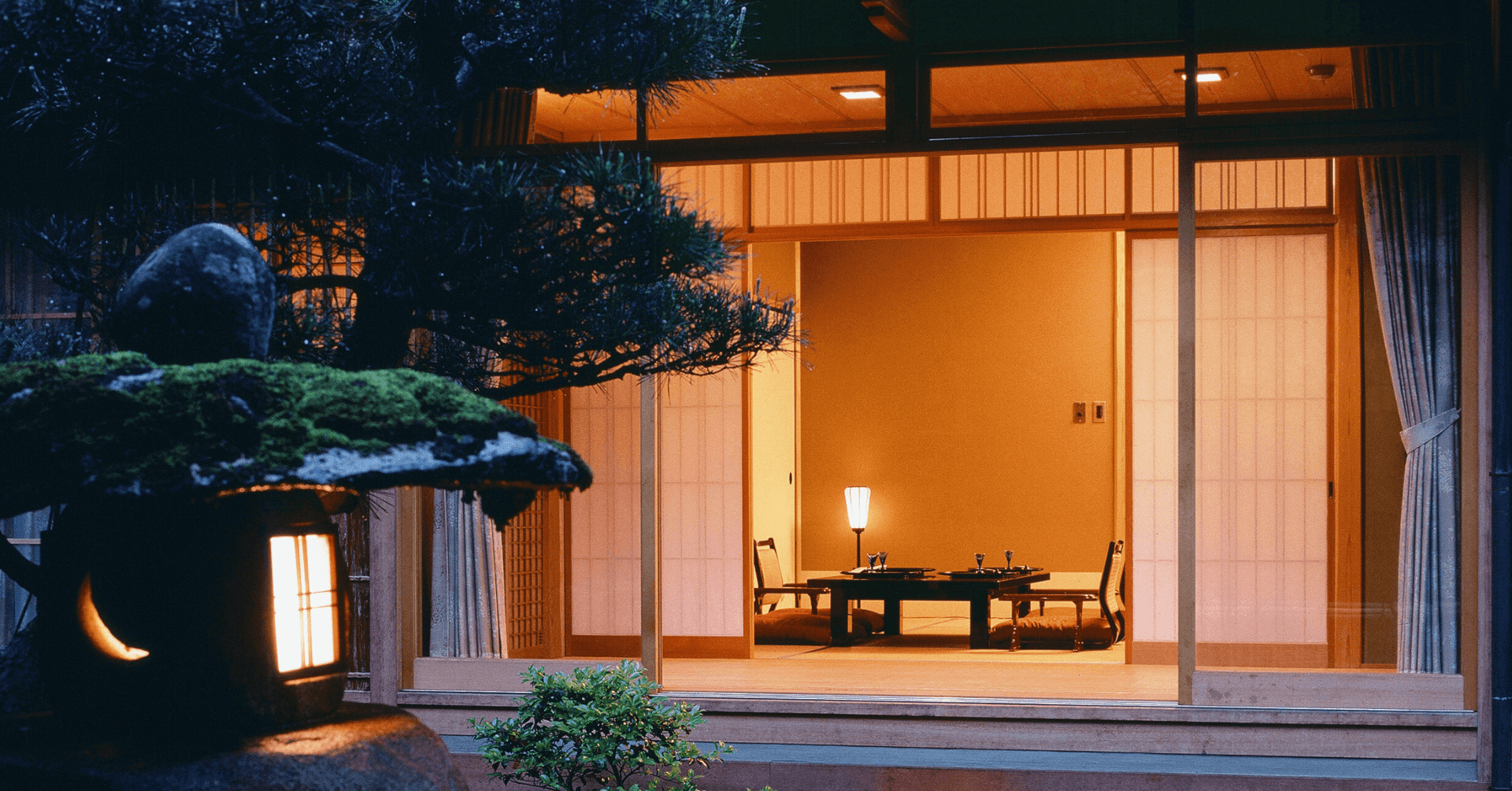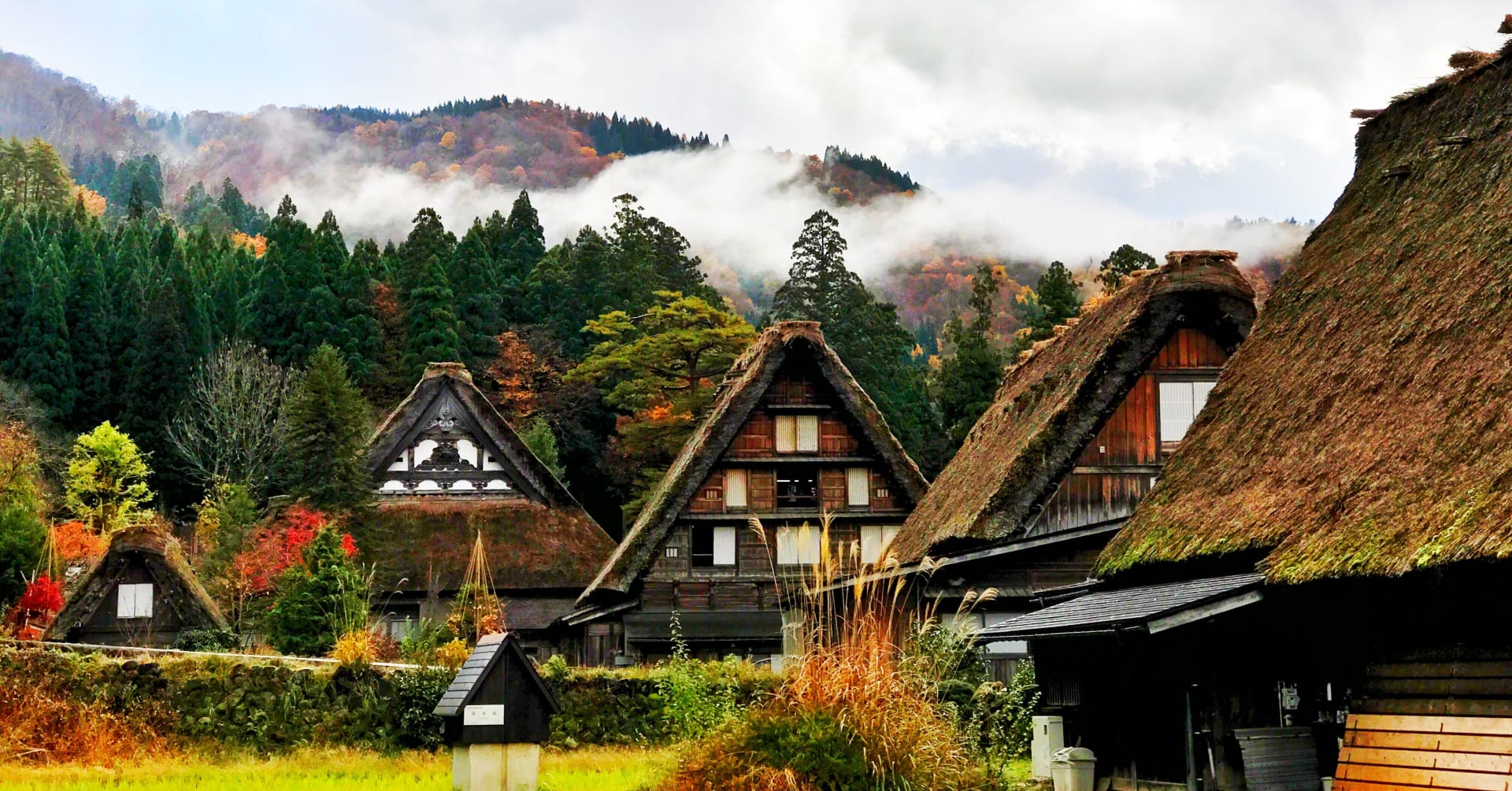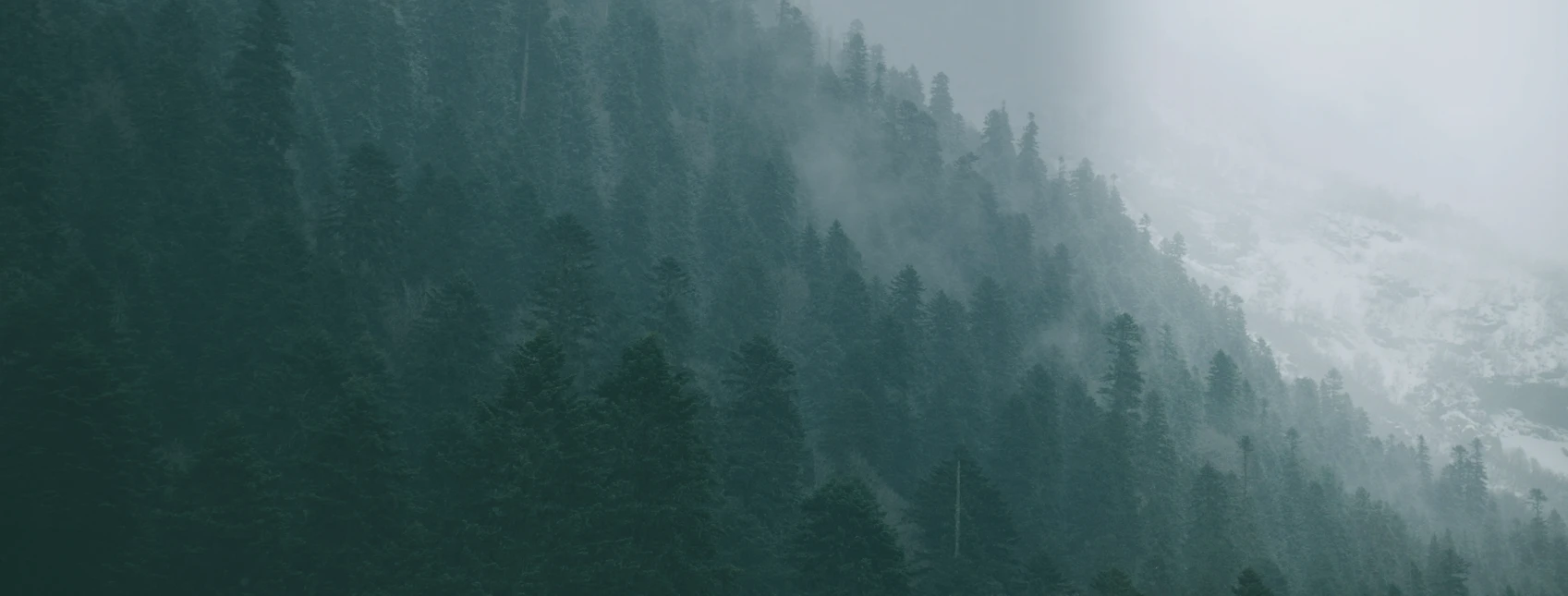Food & Art: A Two-Week Cultural Japan Itinerary
Tailor made from £8,699 per person
15 days
Tokyo, Matsumoto, Takayama, Kyoto, Naoshima, Osaka
Tailor made from £8,699 per person
 15 days
15 days
 Tokyo, Matsumoto, Takayama, Kyoto, Naoshima, Osaka
Tokyo, Matsumoto, Takayama, Kyoto, Naoshima, Osaka
Trip Itinerary
Please select any day below to view that destination
- Day 1 – Arrive in Tokyo
- Day 2 – Private Tour of Tokyo
- Day 3 – teamLab Borderless Digital Art Exhibition
- Day 4 – Tokyo to Matsumoto
- Day 5 – Make Your Own Soba Noodles
- Day 6 – Sake Tasting Experience
- Day 7 – Takayama to Kyoto
- Day 8 – Private Tour of Kyoto
- Day 9 – Bento Cooking Class in Kyoto
- Day 10 – Kyoto to Naoshima
- Day 11 – Half-Day Private Tour of Naoshima
- Day 12 – Naoshima to Osaka
- Day 13 – Osaka to Mount Koya
- Day 14 – Mount Koya to Osaka
- Day 15 – Departure from Osaka Kansai Airport
Dive into the heart of Japan with this culinary and artistic tour of traditions and culture!
Discover the rich culture of Japan beyond its tech prowess and skyscrapers with this two-week Japan itinerary. It takes you from Tokyo's vibrant cityscape to the natural beauty of the Japanese Alps, the ancient wonders of Kyoto, the artistic haven of Naoshima island, street food delights in Osaka, and a serene retreat in Mount Koya's monasteries. Immerse yourself in traditional attire, local hospitality, exquisite cuisine, and breathtaking gardens. It's an unforgettable journey blending education and sensory exploration.
What's Included:
- Accommodations as stated in the itinerary
- Meals and drinks mentioned in the full itinerary
- Private airport transfers
- Professional local staff with fair salaries
- Bento Cooking Course, Soba Noodles Class, Sake Tasting Experience and Osaka Street Food Safari
- 2-Day Kansai Thru Pass
- An IC (Manaca) Transport Card with 2500 yen credit
- 7-Day Japan Rail Pass (Ordinary Class) and other train tickets between destinations
Trip Itinerary

Days 1-3: Tokyo
Day 1 – Arrive in Tokyo
Upon arrival at Haneda Airport, Tokyo, a private driver with your name sign will transfer you to your Tokyo hotel, just 30 minutes away. Receive a Manaca Card, a nationwide travel card for public transport and various services, starting with 2,500 yen credit. Top up as needed at local machines for easy use.
Your two-week Japan itinerary begins at Park Hotel Tokyo (with breakfast), situated on the top floors of the Shidome Media Tower. The unique design ensures sun-lit rooms with stunning cityscape views, extending to Mount Fuji on clear days. Stay in an exclusive Standard Queen room, each designed by a different Japanese artist. Explore diverse culinary options in the hotel's seven restaurants and bars, offering French to Japanese cuisine.

Day 2 – Private Tour of Tokyo
For your first full day in Tokyo, you’ll be joined by a local guide for a cultural tour of one of the world’s most fast-paced and exciting cities. Your English-speaking guide will meet you at 9 am, and the tour will last until 5 pm. Together, you’ll navigate the city via public transport, just as the locals do, taking in the capital’s different districts, each with their unique sights and personalities.
Hit the multi-way zebra stripes of the famed Shibuya crossing, contemplate ancient Japan in old downtown Asakusa, sample counter sushi with Tokyoites on a business lunch and climb the Tokyo Skytree (the world’s tallest tower) for limitless views of the neon lights below.

Day 3 – teamLab Borderless Digital Art Exhibition
Visit the world’s first digital art museum on the man-made island of Odaiba. Designed by art group teamLab, “Borderless” is an exhibition of 50 digital artworks across five different sections, which all combine the themes of the natural world and interactivity. The Athletic Forest will have you bouncing and swinging your way through art, while the Forest of Lamps changes colour as you move through the glowing lights.
The amount of time spent here is up to you, though we believe you may need more time than you think. If you need a break for a moment, order a green tea at the En teahouse and watch as a digital flower blooms as you take a sip!

Days 4-6: Matsumoto & Takayama
Day 4 – Tokyo to Matsumoto
The next leg of your two-week tour of Japan is in Matsumoto. Depart from the bustling Shinjuku station in Tokyo and enjoy a leisurely two-and-a-half-hour journey through rural landscapes on a Limited Express train, with your ticket covered in the tour. Marvel at paddy fields, and rivers, and catch a possible glimpse of Mount Fuji if the weather permits.
Upon arrival in Matsumoto, dive into sightseeing with a visit to the well-preserved "Black Crow" castle, one of Japan's finest feudal castles. Explore the Matsumoto City Museum of Art located on the castle grounds. Matsumoto, nestled in the alpine valley, is a hub of artistic inspiration. The city has fostered renowned figures like violin teacher Suzuki and is known for its ukiyo-e woodblock prints and delectable soba noodles. Indulge in the local speciality, "Shinshu soba," or venture into the unique experience of trying raw horse.

Day 5 – Make Your Own Soba Noodles
After sampling soba, try your hand at making these buckwheat noodles for yourself at Takagi, a 130-year-old shop. Here you'll join a one-hour Japanese class on noodle-making, which is beginner-friendly, ensuring you become adept at crafting, serving, and savouring soba.
Later, depart Matsumoto for Takayama via a scenic highway bus. Enjoy breathtaking views as you ascend mountain peaks and descend through lush valleys at 1500 meters altitude. The Japanese Alps, comprising Hida, Kiso, and Akaishi ranges, were once believed to house mountain spirits. Takayama, a 16th-century castle town in the Hida Mountains, with Edo period architecture, exudes a timeless charm with sloping roofs and latticed windows.
Enhance your cultural immersion at Tanabe Ryokan, a traditional Japanese guesthouse near Takayama Station. Hosted by Mr. and Mrs. Tanabe, the ryokan offers a unique experience with en-suite rooms and communal baths. Sleep on thick futons laid on tatami mats, completing your authentic Japanese cultural tour.

Day 6 – Sake Tasting Experience
Visit the morning markets on the banks of the Miyagawa River, discover local shrines and temples dotted around town, and marvel at the quality of crafts that come from this region. One of Takayama’s most famous products is sake, and micro-breweries can be found everywhere (look out for large sugidama balls of cedar branches in the entranceways of buildings).
In the evening, you’ll be taking part in a private sake-tasting session at a local Takayama eatery. Your guide will explain the history and cultural significance of sake before you try six different sakes for yourself. You best be paying attention because this one-and-a-half-hour sake-tasting experience closes with a blind-tasting contest, and the winner is awarded a prize!

Days 7-9: Kyoto
Day 7 – Takayama to Kyoto
Next, you’ll leave rural Japan behind and head to the ancient city of Kyoto, the cultural capital of Japan and arguably the whole of Asia. You’ll be staying at the Celestine Kyoto Gion Hotel, located in the “geisha district” of Kyoto. The rooms are furnished in a contemporary Western style, though the hotel is in keeping with the traditional surroundings with features such as communal baths.
If you’re hungry after your journey, be sure to visit the hotel’s restaurant. Run by Endo Yasaka, this tempura institution has been going for over a century and is well known in Kyoto. There is also a separate sushi counter if you’d rather get a light bite.

Day 8 – Private Tour of Kyoto
Kyoto is the soul of Japan and home to an extraordinary 17 UNESCO World Heritage sites, as well as delicious cuisine and breathtaking gardens. Although the modern buildings of the city may fool you, Kyoto’s enduring charm lies in the details and the well-preserved historic districts.
You’ll be met at your hotel from 9 am, travelling by public transport or taxi, sightseeing with your English-speaking private tour guide until 5 pm. Don’t miss iconic spots such as the geisha-famed streets of Gion, the tunnels of red gates at Fushimi Inari and the serene green shade of the Arashiyama Bamboo Grove.
*Please note that lunch, transport costs, and entrance fees are not included in the private tour.

Day 9 – Bento Cooking Class in Kyoto
Learn about Japanese cuisine at Cooking Sun, a small food school run by professional chef Yasuhiro Nakai, set in a traditional machiya (townhouse). The class runs from 9.30 am to 1 pm, and dietary requirements can be accommodated if requested in advance.
You’ll be greeted with a welcome drink before you start working on your bento lunchbox; guided through the class by English-speaking chefs, you’ll create five or six seasonal Japanese dishes. Try your hand at teriyaki chicken, tempura, sushi and miso before sitting down to eat your creation.

Days 10-11: Naoshima
Day 10 – Kyoto to Naoshima
You’ll leave Kyoto for Naoshima via public transport. Don't be apprehensive about this, as we'll provide full instructions in your info pack before departure, and locals are incredibly friendly and helpful if you feel lost (even if they don’t speak English!).
Your two nights in Naoshima will be unlike anywhere else you’ll stay in Japan. You’ll be staying in one of the four iconic buildings designed by famous architect Tadao Ando, at the art museum complex of Benesse House – one of the main attractions in Naoshima. You’ll sleep amid natural beauty and world-class artworks, in a room with a terrace and views of the garden grounds. Each guest room is ocean-facing, with different art pieces decorating the interiors. This hotel is perfect for those who love artistic expression, architecture and culture.

Day 11 – Half-Day Private Tour of Naoshima
Naoshima Island, floating in the Seto Inland Sea, was just another stop for fishermen until it became the focus of a creative art project. Today, Naoshima is packed with art galleries, indoor and outdoor exhibits, contemporary installations and thought-provoking architecture. It’s an art lover’s dream. The Chichu Art Museum and your accommodation, Benesse House, are two of the most renowned galleries on the island, both designed by Tadao Ando and home to iconic pieces by big names like Andy Warhol and Claude Monet.
Your private English-speaking tour guide will meet you at your hotel from 9 am, and you’ll navigate the island’s many sights by foot, bus, rental bike (our recommendation) or taxi. The tour will finish at 1 pm so that you’re able to spend the afternoon exploring at your leisure.
*Please note that transport and entrance fees are not included in the private tour.

Days 12-15: Osaka
Day 12 – Naoshima to Osaka
After checking out of your hotel, you’ll head to Osaka, where you'll be staying at the Osaka Marriott Miyako Hotel (breakfast included), located on the 38th and 57th floors of the Avena Harukas building. Your room will feature floor-to-ceiling windows with unparalleled views of Osaka.
In the evening, you’ll take part in a street food tour of Osaka’s neon-bright Dotonbori district, which will definitely put your taste buds to the test. This lively area, situated alongside a canal, is packed with competing restaurants and food stalls, as well as crowds of hungry foodies. The tour takes around three hours, diverting away from the regular tourist hotspots to the backstreet izayaka bars and pubs. Here, you’ll sample takoyaki octopus dumplings and kushikatsu fried skewers, as well as other Osakan delicacies.

Day 13 – Osaka to Mount Koya
During your time in this region, you’ll be provided with a 2-Day Kansai Thru Pass, which covers non-JR transport in the Kansai area. Using this pass, depart for Mount Koya via the Nankai Line express train. You’ll wind through the suburbs of Osaka and the rural landscapes of Wakayama until you reach the end of the line at Gokurakubashi Station. From here, you’ll take a thrilling funicular ride all the way to the top of Mount Koya’s plateau.
Once you’ve arrived at Mount Koya, you’ll stay for one night at Shojoshin-in, one of the largest and oldest temples in Koya, which started out as the humble hut residence of Kukai – the monk who founded the monastery here. You’ll stay in a Japanese-style Hanare cottage room with bathroom facilities. Morning sutra reciting takes place at 7 am, with breakfast served afterwards at 8 am. You’ll eat dinner at 5 pm in the shukubo, with speciality Shojin-ryori (vegetarian) dishes on offer, such as sesame tofu and koya-tofu prepared in the local style (both meals are included in your stay).

Day 14 – Mount Koya to Osaka
Koya-san is a sacred mountain, and the plateau at the top is the headquarters of the Shingon School of Buddhism. Mount Koya is home to many monasteries and temples, and there has been a religious presence in this region for centuries, with the earliest settlements dating back to 816 AD. The atmosphere at this mountain escape is incredibly tranquil and contemplative, making it the perfect place to reflect on your action-packed cultural tour of Japan. Take a peaceful walk around the woodlands or simply relax with a deep breath of mountain-fresh air.
When you’re ready and revitalised, you’ll make the journey back to Osaka via the Nankai train line. You’ll also be returning to the luxury of the Marriott Miyako Osaka for your final night in Japan.
Day 15 – Departure from Osaka Kansai Airport
Sadly, your two-week Japan itinerary comes to a close. Depending on your flight time, spend your last day exploring, picking up souvenirs or having a last mouthful of tasty Japanese cuisine.
We hope this cultural tour of Japan has opened a window into the true soul of the country and that all your senses have been stimulated by the riches Japanese culture has to offer. We imagine you’ll leave with a camera full of photos and a heart full of memories, but – just as we feel when leaving the land of the rising sun – it won’t be long before you return.
Why Wayfairer
As per Wayfairer’s ethos, this cultural tour of Japan was curated with the objective of having a positive impact on local people, as well as the natural landscape.
All local guides that we work with are paid fairly, we only work with accommodation providers with responsible initiatives, while our tour activities have an emphasis on cultural exchange.
This cultural tour through Japan includes routes between destinations via public transport (just like the locals), which helps reduce pollution; Japanese cooking experiences run by local chefs; guided tours with a local perspective; as well as stays in traditional Japanese ryokan (guesthouses) and the monasteries of Koya-san – a truly unique cultural experience.

More Japan travel inspiration from Wayfairer customers and travel specialists

When Is The Best Time to Visit Japan? A Season-by-Season Travel Guide
May 07, 2025

All You Need to Know About Staying at a Ryokan in Japan
April 14, 2023

9 Off-the-Beaten-Path Places to Visit in Japan
April 14, 2023

Sign up to our newsletter
For more travel inspiration delivered straight to your inbox just fill in your details here


